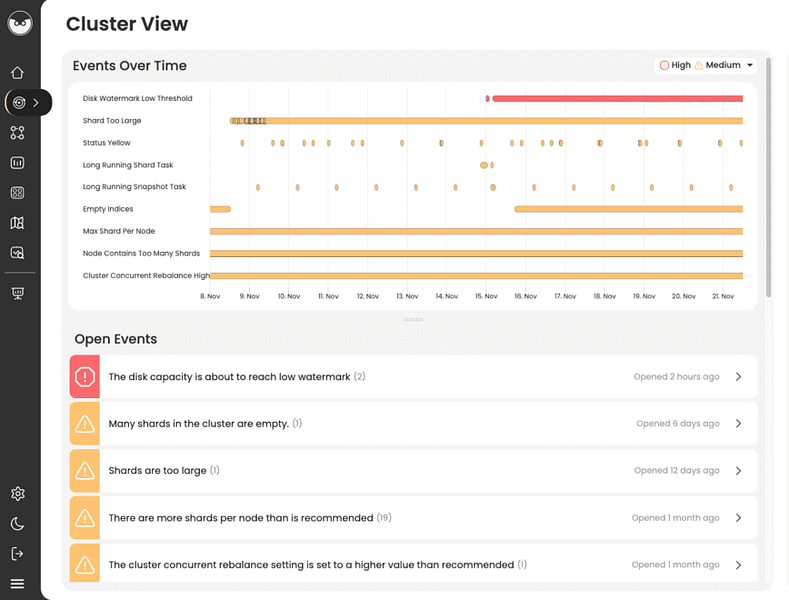Opster Team
Last updated: Oct 30, 2022
| 1 min readIn addition to reading this guide, we recommend you run the Elasticsearch Health Check-Up. It will detect issues and improve your Elasticsearch performance by analyzing your shard sizes, threadpools, memory, snapshots, disk watermarks and more.The Elasticsearch Check-Up is free and requires no installation.
To manage all aspects of your OpenSearch operation, you can use Opster’s Management Console (OMC). The OMC makes it easy to orchestrate and manage OpenSearch in any environment. Using the OMC you can deploy multiple clusters, configure node roles, scale cluster resources, manage certificates and more – all from a single interface, for free. Check it out here.
Overview
Replication refers to storing a redundant copy of the data. OpenSearch creates one primary shard with a replication factor set to 1. Replicas never get assigned to the same node on which primary shards are assigned, which means you should have at least two nodes in the cluster to assign the replicas. If a primary shard goes down, the replica automatically acts as a primary shard.
What it is used for
Replicas are used to provide high availability and failover. A higher number of replicas is also helpful for faster searches.
Examples
Update replica count
PUT /api-logs/_settings?pretty
{
"index" : {
"number_of_replicas" : 2
}
}Common problems
- By default, new replicas are not assigned to nodes with more than 85% disk usage. Instead, Elasticsearch throws a warning.
- Creating too many replicas may cause a problem if there are not enough resources available in the cluster.
Find & fix Elasticsearch problems
Opster AutoOps diagnoses & fixes issues in Elasticsearch based on analyzing hundreds of metrics.
Fix Your Cluster IssuesConnect in under 2 minutes

Adam Bregenzer
CTO at Groupsense





